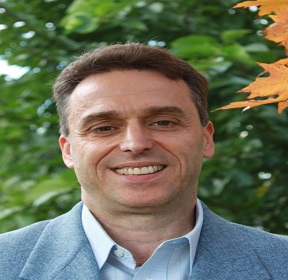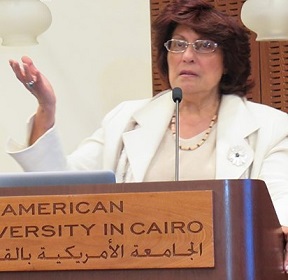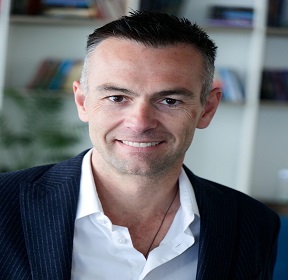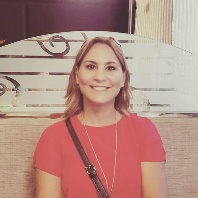Speakers
Dr Petru Sandu
USATitle: Theoretical Foundations of Family Business Research: Present Debate and Future Directions
Abstract:
Theoretical Foundations of Family Business Research: Present Debate and Future Directions
Family business, as the most popular business form, dominates the world economy (Astrachan and Shanker, 2003). Due to the key role and uniqueness of family firms, an important growth of family business research has been recorded over the past three decades. The research purpose is to analyze the current state of theory in family business research and discuss its implications from the perspective of a literature review focused on the theoretical dimensions of family firm investigation. The importance of this research relates to the need of developing mainstream entrepreneurship and business theories in general that apply to family businesses (Christman, Chua, and Steier, 2003). The study proposes possible directions for future research toward a better understanding of family firm as a global phenomenon.
Biography:
Dr. Sandu's scholarly interests are in the areas of family business and entrepreneurship, with a special focus on family business professionalization, entrepreneurial ecosystems, and family business succession. His research has been published in several peer-reviewed journals and his work on family business professionalization was featured in Forbes.
Dr. Sandu was a visiting professor at the University of Jaen, Spain in 2013 and 2020 during his sabbaticals. He was also a visiting professor at the Bader International Centre, Herstmonceux Castle, U.K. (a campus of Queen's University, Canada) in 2009 and 2010. Dr. Sandu teaches courses in Entrepreneurship, Family Business, and Corporate Strategy. He participated in various programs in Costa Rica, Puerto Rico, Denmark, Iceland, U.K., France, Italy, and Luxembourg. Dr. Sandu served as Dean and Associate Dean of the School of Economics Sciences and Public Affairs at "Stefan cel Mare" University of Suceava in Romania and founded a family business. He joined Elizabethtown College in 2003.
Title: Turning the world on its head: The virus that disrupted business as usual
Abstract:
The pandemic overwhelmed the world and turned it upside down. Business is no more “as usual”. I identify some overlooked pandemic patterns that merit consideration and suggest approaches for dealing with development with insights into what might work better in today's world, particularly in dealing with global-scale crises. The proposed approach is rooted in notions traditionally central to the field of economic anthropology, such as the concept of exchange and "the gift," in a way that conceptually centers the concept of value and the ideal of socio-moral justice.
Biography:
Dr. Fadwa El Guindi, Retiree at UCLA, former Distinguished Professor at QU, graduated Cum Laude from the American University in Cairo in 1960. AUC in 2017 honored her as an AUC Distinguished Alumna. She holds intensive fieldwork experience in three different regions: Nubia, the Valley Zapotec, and the Arabian Gulf (Qatar). She has published 8 academic monographic books, 3 award-winning visual ethnographies, and more than 1700 research articles, many of which are published in high impact factor scientific journals, in addition to many public pieces and Op-Eds in major venues, and was interviewed globally. Her publications appeared in English, Arabic, French, Russian, Spanish, Italian, German, and Indonesian. She serves on a number of editorial boards of prestigious academic journals.
El Guindi’s expertise on the Middle East brought her to the Clinton White House, and she frequently gave lectures to diplomats assigned to the Middle East at the Foreign Service Institute of the U.S. Department of State.
El Guindi is a Fellow & Trustee at the World Academy of Art & Science, and is Associated Scientific Research at the Institute for Advanced Studies in Levant Culture & Civilization, Bucharest, Romania. She has recently been elected Member of the Scientific Council of the Institute for Advanced Studies in Levant Culture and Civilization, Bucharest Romania. She is Co-Founding & Senior Editor of the Journal Kinship.
Milan Veskovic
GermanyTitle: Global business expansion
Biography:
Milan started as a call center agent in Signal Iduna Insurance & Finance company in Stuttgart, Germany in 2004. Soon after he joined the sales team as a door to door Salesman, acquired necessary licensing and grew to be an Insurance Agent, later Insurance and Finance agency owner. Joining Generali Insurance and being mandated to set up the Sales Force of a newly acquired Insurance company in Serbia which grew to 320 active and profitable salespeople and two additional departments, sales controlling and sales support department. Joining Banking group Societe Generale, first as Commercial director with responsibilities in Sales, Marketing and Product development and later in a second entity, as directors committee member responsible for the same. In 2018 joining wefox as Global Chief Sales Office, Managing director of the operational entities and later also Insurance relations director. Since March 2021 operating as an independent Senior Business Advisor and Consultant for major Insuretech and Fintech Startups.
Alejandra Gimnez
SpainTitle:
Biography:
Alejandra Gimenez is an Entrepreneur by nature with extensive experience in the environment of start-ups, especially digital health. Passionate about innovation in e-health. Business development, strategy implementation, applying creativity to business processes are my great challenge in the healthcare sector.
FARAH JEMILI
CanadaTitle: Design thinking approach to an Artificial intelligence solution for the Match CV problem
Abstract:
AI is a hot topic in healthcare, sparking ongoing debate about the ethical, clinical, and financial pros and cons of relying on algorithms for patient care. It could revolutionize healthcare over the next few decades, but only if stakeholders focus on building the right data-driven foundations now. It is also poised to become a transformational force in healthcare. How will providers and patients benefit from the impact of AI-driven tools? At the recent World Medical Innovation Forum (WMIF) on Artificial Intelligence presented by Partners Healthcare, a leading researchers and clinical faculty members showcased the Twelve technologies and areas of the healthcare industry that are most likely to see a major impact from Artificial Intelligence within the next decade. Brain-computer interfaces (BCIs) - backed by Artificial Intelligence could restore those fundamental experiences to those who feared them lost forever, in Neurological diseases and Trauma to Nervous system. Radiology Tools - Artificial Intelligence will enable the next generation of radiology tools that are accurate and detailed enough to replace the need for tissue samples/biopsies in some cases. Shortage - Artificial Intelligence could help mitigate the impacts of deficit of Healthcare Personnel, in Underserved and developing regions. Electron Health Record - developers are now using Artificial Intelligence to create more intuitive interfaces and automate some of the routine processes that consume so much of a Doctors and Nurses time. Infection Patterns - Electronic Health Record data with Artificial Intelligence can help to Identify Infection Patterns and highlight patients at risk before they begin to show symptoms. Digital Pathology - and Artificial Intelligence can deliver accurate and faster diagnosis with extremely large digital images can allow providers to identify minor details that may escape the human eye. Medical Devices - In the Medicine environment, Smart Devices are critical for monitoring patients in the ICU and elsewhere. Inserting Artificial intelligence algorithms into these devices can reduce cognitive burdens for physicians while ensuring that patients receive care in as timely a manner as possible. Immune Therapy - Artificial Intelligence algorithms and their ability to synthesize highly complex datasets may be able to illuminate new options for targeting therapies to an individual’s unique genetic makeup. Reliable Predictor - Artificial Intelligence analytics have produced many successful Risk Scoring and Stratification Tools, especially when researchers employ Deep Learning techniques to identify novel connections between seemingly unrelated datasets. Wearables - Artificial Intelligence will play a significant role in extracting actionable insights from this large and varied treasure of data. Smart Phones - The quality of cell phone cameras is increasing every year and can produce images that are viable for analysis by Artificial Intelligence algorithms. In this Dermatology and Ophthalmology are early beneficiaries of this trend. Bedside Monitors - Artificial intelligence can provide earlier warnings for conditions like Seizures or Sepsis, which often require intensive analysis of highly complex datasets. Early alerting is one of the most promising areas of development for this revolutionary approach to data analysis.
Biography:
FARAH JEMILI is Lab technician working in West Health Centre, in Canada. She studied Medicine (MBBS) in KMC, Warangal, India and graduated in 1978. After Graduation, he was trained in Jamaica, Ireland and United Kingdom in Surgery and Surgical Specialties and obtained his FRCS from Royal College of Glasgow in 1987. After surgical training, he worked as Consultant Surgeon in Ireland for almost 5 Years till 1995. Later he returned to Hyderabad, India and worked as Laparoscopic Surgeon and Surgical Gastroenterologist at Apollo Hospitals, Jubilee Hills, Hyderabad, till 2008. In 2009, she got an offer from LG Health, NL, Canada and moved there. Presently he is working in Canada as a Laparoscopic Surgeon and Surgical Gastroenterologist. In 2001, she was awarded Fellowship (FRCS) without Examination by Royal College of Surgeons of Edinburgh, UK. She was then appointed as Examiner and Surgical Tutor for MRCS, by Royal College of Surgeons of Edinburgh. He was also Inspector for National Board of Examination and visited and Inspected several Private Healthcare facilities in India in view of granting DNB seats. He has MBA degree from Frankfurt School of Finance & Management, Germany in International Healthcare Management.





